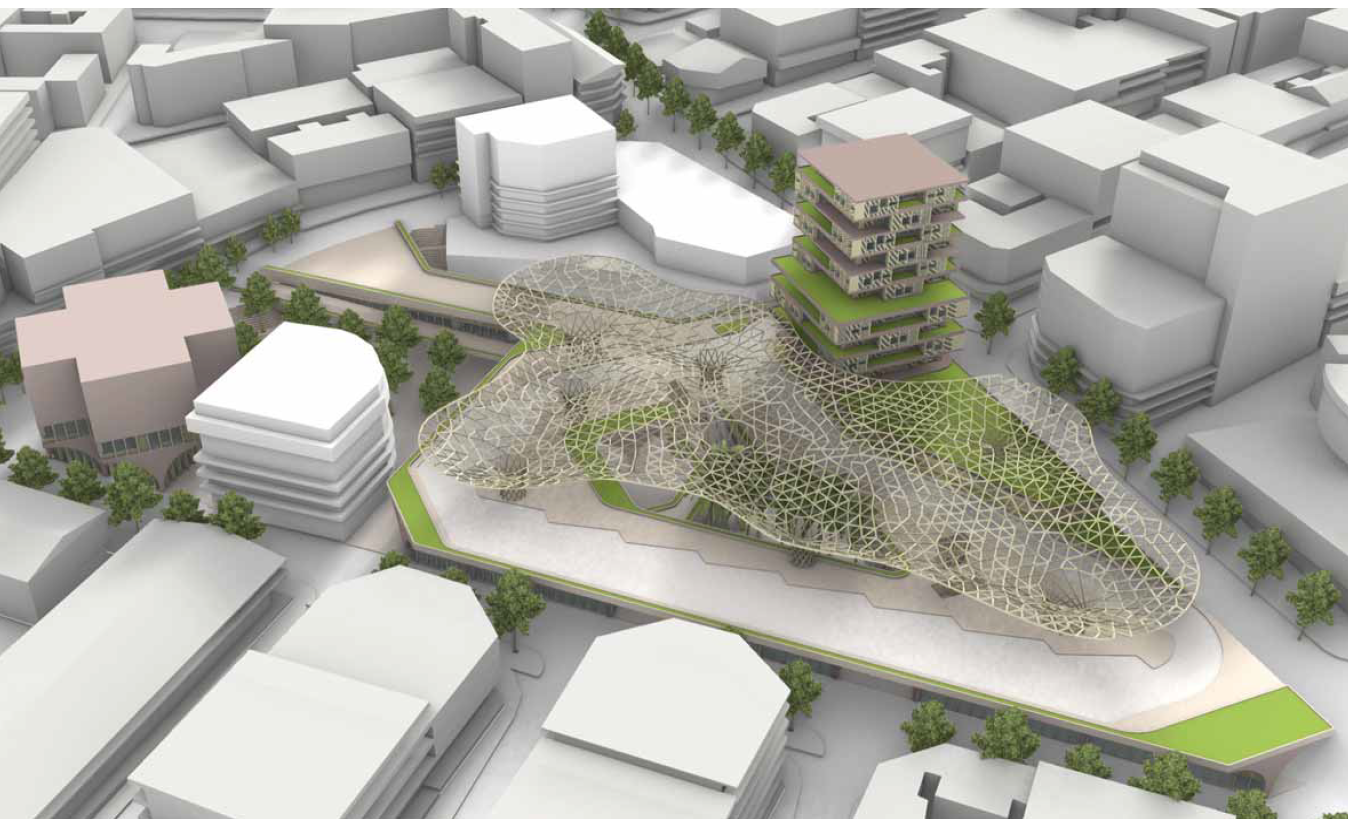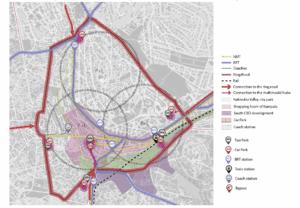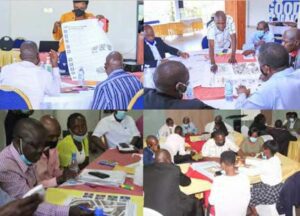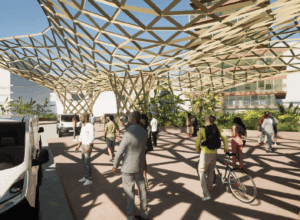
Projects
Redesign of the Old Taxi Park in Kampala, Uganda
OTP Omutima Terminal accelerates downtown Kampala……creates a unique public space, but most of all..….offers a crucial step in public transport improvement for the city!
Year
2020-2025
Location
Uganda, Kampala
Client
Kampala Capital City Authority
Partners
-
VE-R
-
Studio Akeka
-
Rebel Group
Team
DASUDA partners MOVE Mobility, VE-R, Studio Akeka, Rebel Group), with support of Movares and Prome Consultants redesigned the historic Old Taxi Park into a smart, inclusive transport hub – combining local insight with global expertise. From congestion to connection: discover how mobility, planning, finance, stakeholder involvement and knowledge exchange came together in Uganda’s capital.
The Old Taxi Park serves as a central hub for public transportation, mainly for 14-seater minibuses. Due to Kampala’s rapid urban growth and increasing demand for transport, the area suffers from constant congestion and a lack of adequate facilities. The project aims to address these issues by transforming the square into a future-proof central terminal, preserving its cultural value while improving its function in the city’s public transport network.

The project was built around four main focus areas:
Mobility: The mobility strategy followed a structured, multi-level approach – from broad vision to detailed design. The team focused on:
- Optimization of public transport organization, terminals, routes, stops, and schedules
- Use of advanced tools such as GIS data, the MOVE Meter, and VISSIM simulation software
- Ensuring livability and practicality at every step of the process.

Multi-modal system at city centre scale
Urban Planning: The team understands the site in its broader urban context and identified both constraints and opportunities. Through a stakeholder-oriented design process, various development options were explored and evaluated for feasibility and support.
Engaging stakeholders was a crucial part of the process. Collaboration included landowners, representatives of the taxi sector, vendors, commercial associations, the municipality, government bodies, and decision-makers, all contributing to a broadly supported and feasible solution.

Financial Strategy: A strategy built on feasibility, bankability, and transit-oriented development.
Stakeholder involvement and Knowledge Exchange: A “learning by doing” approach was key to the project, which functioned as a living lab:
- Collaboration within the Stakeholder Platform
- Core team preparation and evaluation sessions
- A Knowledge Exchange Week in the Netherlands for sharing knowledge and best practices.
Stakeholder involvement—from local vendors to government representatives—was essential in shaping a sustainable and future-proof public transport terminal in the heart of Kampala.
